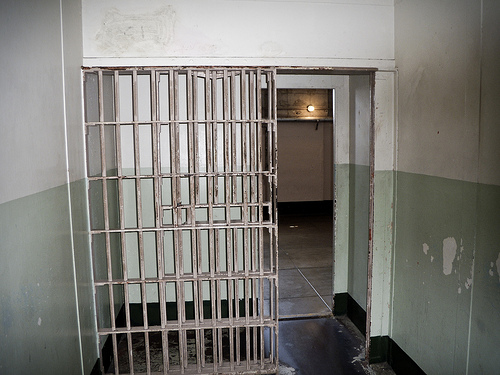Understanding Probation in New Jersey
Our criminal defense law firm is based in Philadelphia, but our close proximity to South Jersey, specifically Camden, Gloucester, Burlington, Cumberland, and Mercer Counties allow us to handle criminal matters in the state. Whenever possible our law firm wants to provide value to its client’s in the form of books, videos, podcasts, and this weekly blog. This blog is based on questions that we receive from clients, and recently I received a question about the probation system in New Jersey.

New Jersey Probation Overview
Like Pennsylvania, probation in New Jersey is a form of rehabilitation which allows a judge to sentence a person to a specific term which does not require them to serve any time in prison for a number crimes including those involving illegal drugs or narcotics and even some illegal gun and firearm offenses. While a person is not in jail, a convicted person on probation in New Jersey (or Pennsylvania) is required to follow strict supervision guidelines and is subject to supervision by a probation officer. If the person fails to follow these guidelines it will result in a violation of probation which can lead to an extended period of probation or even jail time. A violation of probation can also result in a judge terminating probation and resentencing the person based on the guidelines for the original criminal charge or offense. Similar to Pennsylvania, a New Jersey judge can impose specific conditions on a person serving probation and typically probation conditions are as follows:?
- Regular scheduled meeting with a probation officer
- Submitting to random drug testing
- Wearing a monitor device
- Attending drug/alcohol abuse or anger management classes
- Performing community service
- Staying arrest and offense free
- Remaining in a specific geographical location
- Not possessing a firearm or gun
New Jersey Probation vs. Parole
While people often use the terms probation and parole interchangeably, it is extremely important to understand that there’s a difference between the two. While probation and parole are alternatives to jail and require those serving these sentences to submit to warrantless searches (searches without probable cause), probation is an alternative to incarceration while parole requires that a person serves some time in jail before being eligible for release. In New Jersey a person becomes eligible for parole after serving the mandatory minimum sentence (i.e. Graves Act offense) or 1/3 of the sentence if no minimum is imposed. Once a person is released on parole the requirements are very similar to those of probation stated above. If a person violates the terms of parole, he or she is subject to parole revocation proceedings and could be returned to prison to serve the remainder of their term.
Violations of Probation (VOP) in New Jersey
If a probation officer believes that a defendant has violated the terms of his or her probation, the officer will file a violation of probation complaint with the court which specifies the conditions which the person violated. In New Jersey the judge who hears the violation of probation will sometimes be the same judge who imposed the sentence but this isn’t always the case.
A VOP hearing in New Jersey consists of two parts. During the first part of the proceeding the judge will determine if the person actually violated the probation; the second part is sentencing. You are entitled to have a lawyer present during both parts of these proceedings and if you fail to appear the judge will issue a bench warrant for your arrest!
Burden of Proof at New Jersey VOP Trials
In New Jersey a VOP is determined in two ways, either through a guilty plea in which the person admits that they have violated the terms of the probation or the court conducts a VOP trial. At a VOP trial, the State is represented by the county prosecutor and not the probation officer. The prosecution and the defense have the right to cross examine witnesses. Unlike a criminal trial however, the evidentiary burden of proof at a VOP is much lower. At a criminal trial the burden of proof on the state is beyond a reasonable doubt whereas at a VOP trial the state is only required to prove that a person violated probation by a “preponderance of the evidence”. Another very important difference between a VOP trial and a traditional criminal trial is that hearsay evidence is admissible (permitted).
If the state is able to establish a probation violation, a sentencing judge has many options and these include the following:
- Continued probation
- Impose new conditions on probation (more restrictions)
- Extend probation
- Terminate probation entirely and resentence the person (usually to jail)
Pleas and Probation Violations
Please keep in mind that if a person violates probation the sentencing judge is no longer bound by the terms of any previous plea bargain and the judge can therefore sentence a person to any legal sentence available based on the offense. Remember that in New Jersey, indictable criminal offenses are classified as criminal charges of the first, second, third, or fourth degree. Crimes of the first or second degree have a presumption of incarceration, which means that a person convicted of these offenses will, in almost all circumstances, be sentenced to some term of prison. Third and fourth degree offenses do not have a presumption of incarceration but a judge can still order incarceration if the prosecution argues that it is appropriate. A period of probation in New Jersey cannot be less than 1 year or more than 5 years. See NJS 2C: 45-2(a).
For more great information on criminal defense topics in New Jersey, I encourage you to keep reading my blog.
Contact Our Criminal Defense Lawyers in PA & NJ
Please click here to contact our Philadelphia criminal defense lawyers. We offer free case reviews and serve the following areas in Pennsylvania and New Jersey, Atlantic City, Camden, Cherry Hill, Chester, Conshohocken, Doylestown, Media, Norristown, Philadelphi


